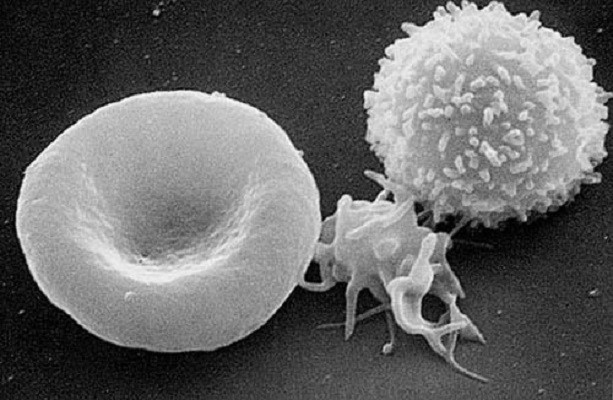Immunotherapy: Leukaemia clinical trial sees 93% remission rate in advanced cancer patients

An early-phase clinical trial using immunotherapy to treat leukaemia has shown positive results. Results showed 93% of advanced leukaemia patients went into remission after their own immune cells were re-engineered to kill cancer cells.
Published in the Journal of Clinical Investigation, the first findings of the study are promising, describing high rates of remission. In total, 27 of the 29 adults and paediatric patients who participated in the trial have no more traces of cancerous cells in their blood or their bone marrow.
These findings were particularly surprising for the scientists, because of the fact they were noticed so soon in the clinical trial. "In early-phase trials, you're continually learning. You don't expect results like these from early-phase trials. That's why these response rates are so extraordinary," said senior author Dr. David Maloney of Fred Hutchinson Cancer Research Center, who led the research.
CD19 antigen
The experimental treatment was only tested on people with very severe forms of leukaemia. All had either relapsed or were not responding to standard treatments. Some had received up to eleven rounds of chemotherapy or even bone marrow transplant.
Following a round of chemotherapy participants went through the life-saving immunotherapy approach. It involved genetic alterations of some of the patients' immune system T-cells, so that they would carry an antigen receptor capable of destroying cancerous cells.
The antigen specifically targeted by this genetically-engineered receptor is known as CD19. It is found at the surface of B-cells, a type of white blood cell which becomes cancerous in people with B-cell leukaemia. The modified T-cells targeted the B-cells, by linking to the CD19 antigen.
Immunotherapy: The way forward?
Research interest in CD19 is not new. Because it is a hallmark of B-cells, the protein is frequently used to diagnose leukaemia, and is increasingly the target of new treatments similar to this immunotherapy.
Yet, results have not always been as promising as the ones described here. "Patients who come onto the trial have really limited options for treatment. They have refractory, acute leukaemia. So the fact that we're getting so many into remission is giving these people a way forward," points out study leader Dr. Cameron Turtle.
However, he asserts more research is needed to reach a clinical conclusion about the long-term outcomes of patients who went into remission. "The results are really encouraging and really exciting — and, particularly, the short-term data is really exciting — but we need more time and more research to work out what the longer-term implications of this work are," Turtle concludes.
© Copyright IBTimes 2025. All rights reserved.






















